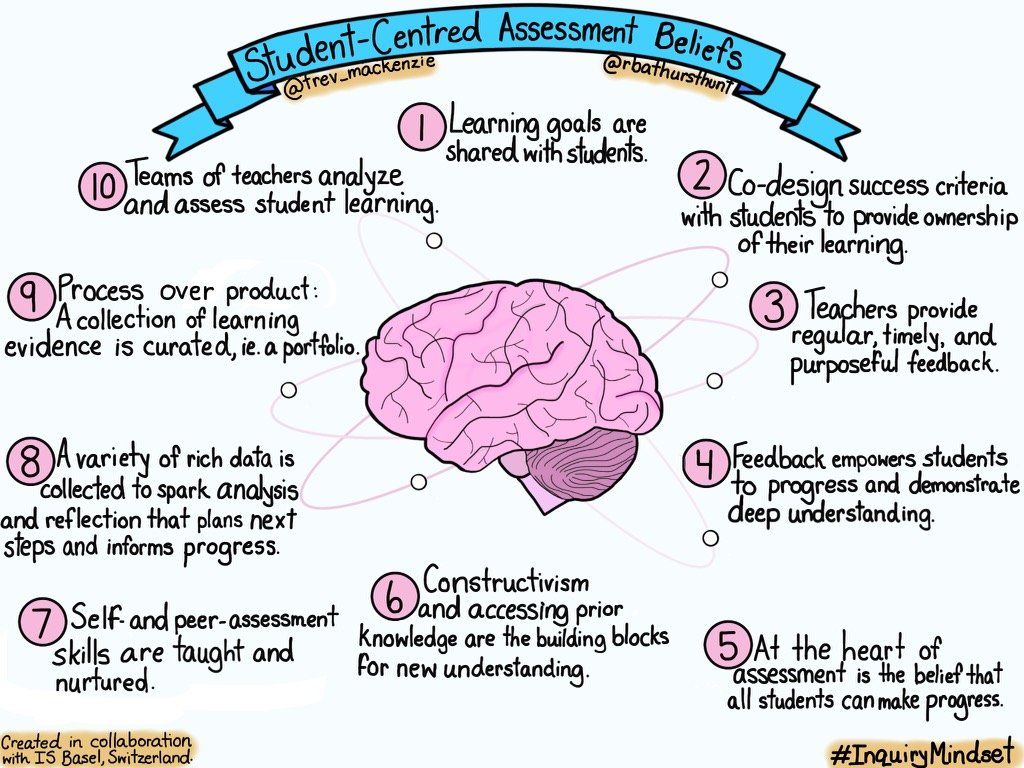I know that is a sassy title for a post, but when it comes to assessment and propelling student growth, doing less to get more is foundational.
Recently I was facilitating a conversation about 10 Student-Centred Assessment Beliefs, Chapter 1 from Inquiry Mindset Assessment Edition. All of the chapters from my publications are mini workshops, aimed to get teachers thinking, planning, and taking action towards a more student-centred learning experience. This chapter is no different.
At one point in the session we were tuning into the third belief: teachers provide regular, timely, and purposeful feedback. Have a look at a snippet from the session below.
Regular, timely, and purposeful feedback takes time and I am often asked how to manage the constraint of time in the face of curricular demands and other school pressures. My answer is twofold. One, we need to sharpen our feedback repertoire to ensure we are getting as strong a return on investment as possible. We need to engage in strong feedback structures, protocols, and frameworks. There is such a thing as “poor feedback”. We need to avoid the pitfalls of poor feedback so the time we invest is not wasted and to ensure it is fruitful. We must engage in up-skilling our formative assessment toolkit.
Second, we need to do less. When I visit schools and work with teachers in inquiry and assessment, I often observe that we do too many tasks that lack care, thoughtfulness, or opportunity to live in feedback mode longer. Sometimes the mindset of the teacher is “the more students do, the better they’ll be”. Without opportunity to reflect on and use powerful feedback, students are shooting blindfolded at a series of ever moving targets of different shapes and sizes. Slowing down and doing less will get us more. Sometimes teachers give amazing feedback but fail to give students time to take the feedback, to understand the feedback, and to demonstrate that they can use the feedback to show growth. Sometimes teachers give time to act on feedback however make the mistake of attaching a grade or mark or score to the feedback. As soon as feedback comes with a grade or mark or score, the learning stops. Avoiding these pitfalls are critical.
So doing less will get more and doing less better, will get even more.
What is in your formative assessment toolkit? How well versed are you in the difference between powerful feedback and merely feedback? How are you slowing down the learning so it is not transactionary, a series of assignments given, done, and turned in without opportunity for care, thoughtfulness, and growth?


